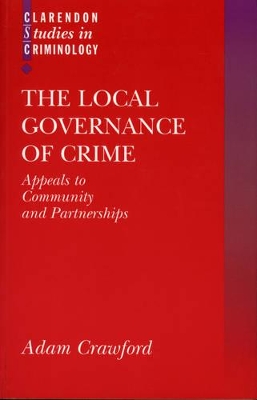Clarendon Studies in Criminology
1 total work
The book considers recent trends in the local governance of crime. It examines the growing appeal to `community' and `partnerships' in criminal justice policy and the involvement of actual communities and partnerships in criminal justice practices. The book makes sense of ongoing transformations in the relations between the state, market, and civil society in the governance of crime and personal safety. It draws upon the findings of two empirical research projects,
conducted by the author, in the fields of community-based crime prevention and local victim-offender and community mediation. The overall aim of the book is to answer, both theoretically and empirically, a number of interrelated questions, namely: How do we make sense of appeals to `community' and
`partnerships' in criminal justice policy? What are the implications of actual involvement of `communities' and the establishment of inter-organizational `partnerships' in crime control initiatives? Is crime control an appropriate vehicle around which to (re)organize communities? Finally, if so, what sort of communities are we generating through such a focus?
conducted by the author, in the fields of community-based crime prevention and local victim-offender and community mediation. The overall aim of the book is to answer, both theoretically and empirically, a number of interrelated questions, namely: How do we make sense of appeals to `community' and
`partnerships' in criminal justice policy? What are the implications of actual involvement of `communities' and the establishment of inter-organizational `partnerships' in crime control initiatives? Is crime control an appropriate vehicle around which to (re)organize communities? Finally, if so, what sort of communities are we generating through such a focus?
